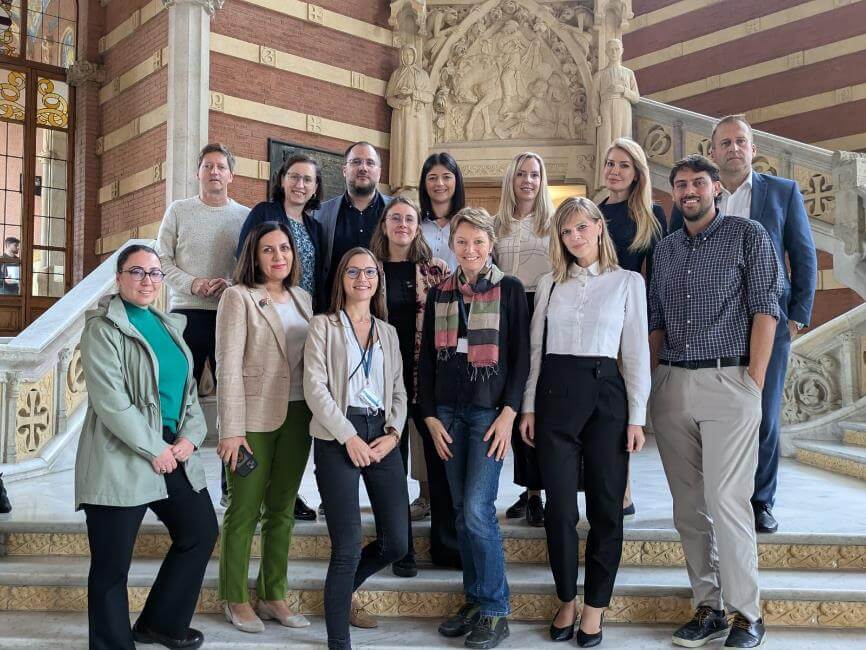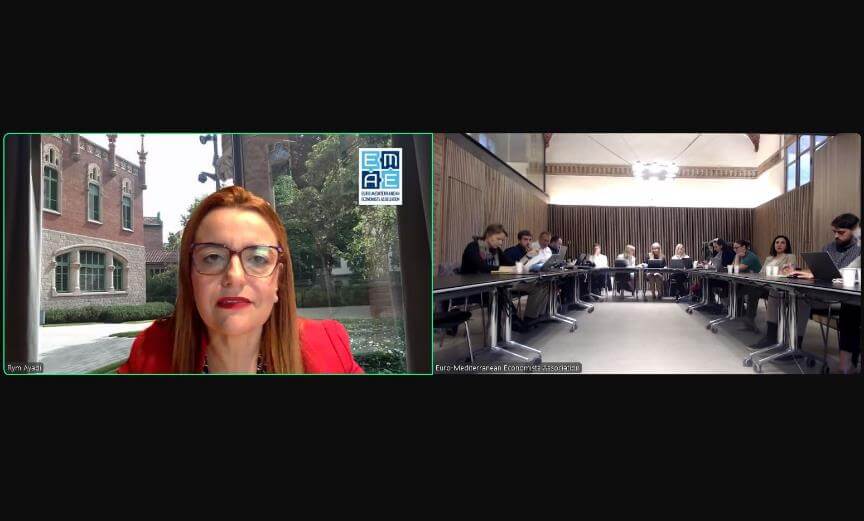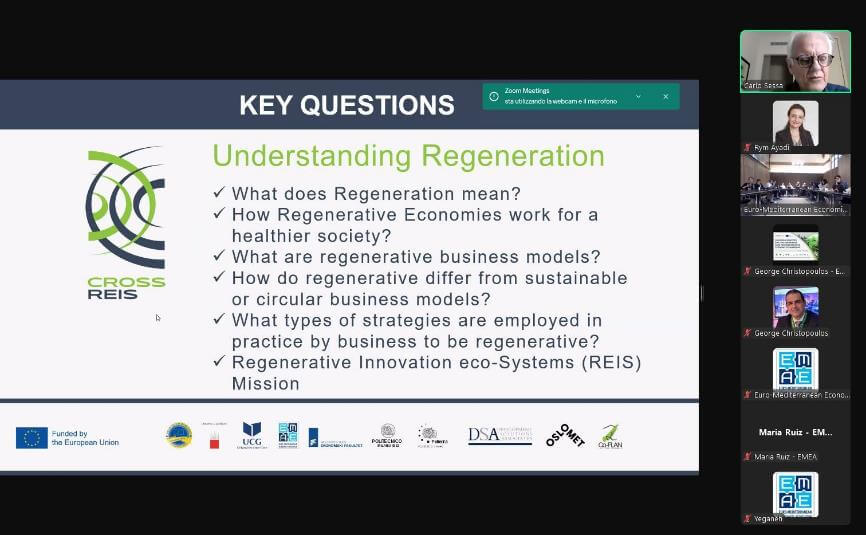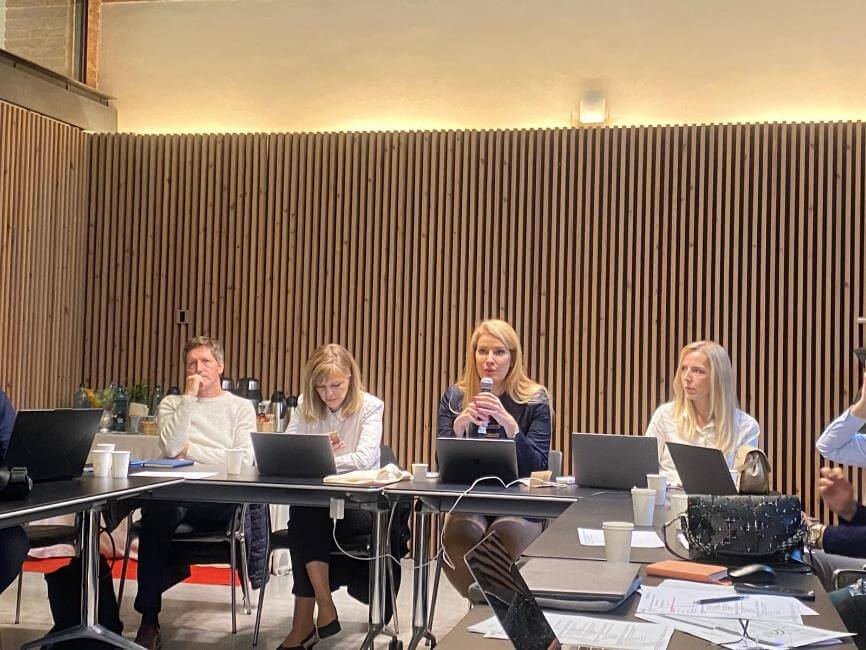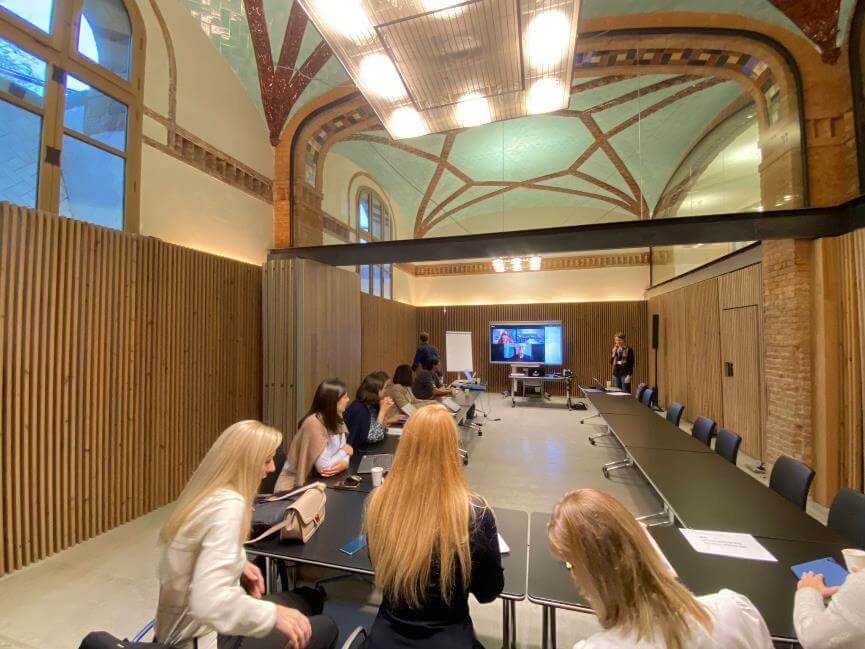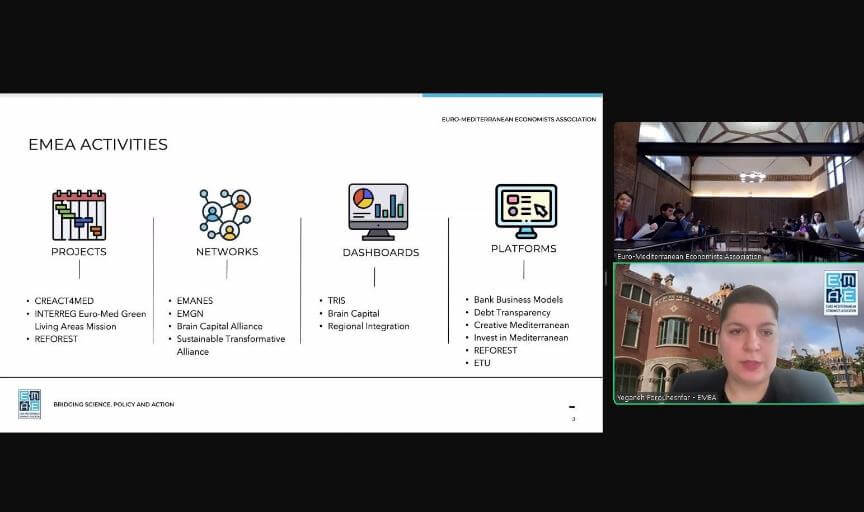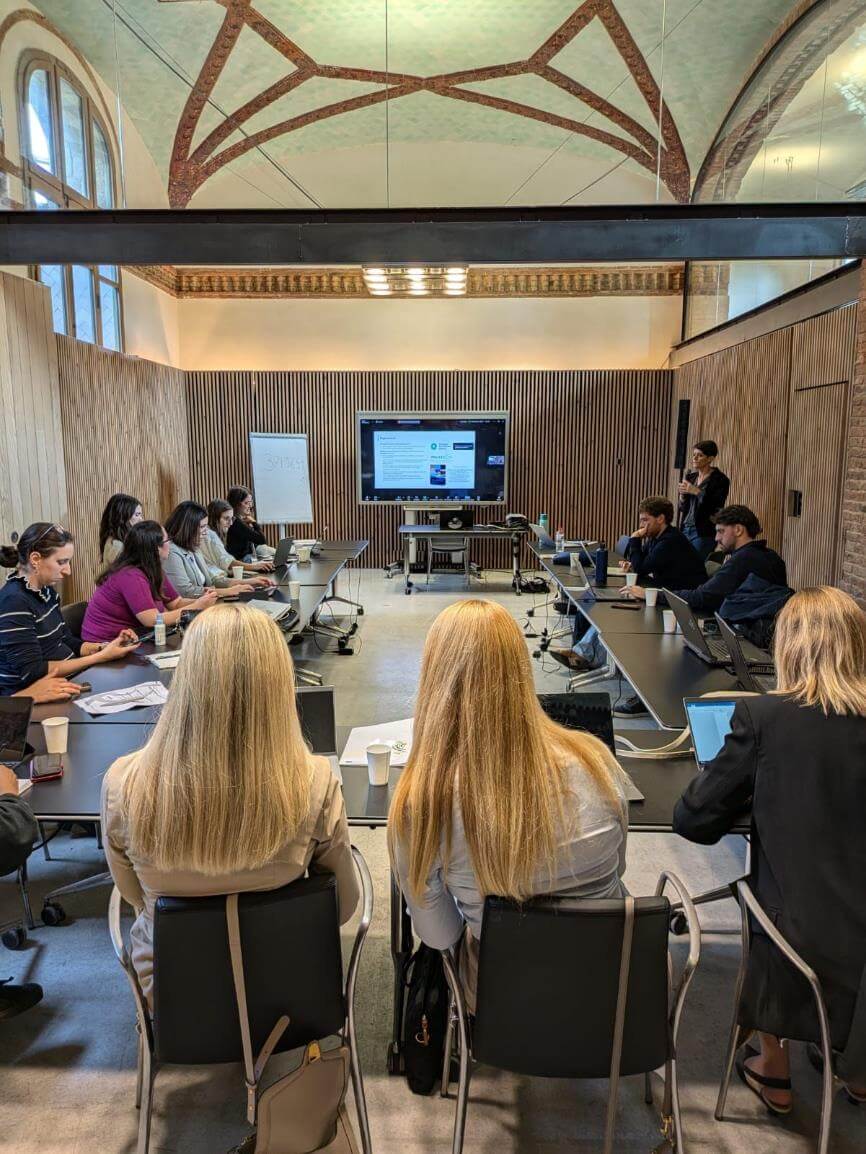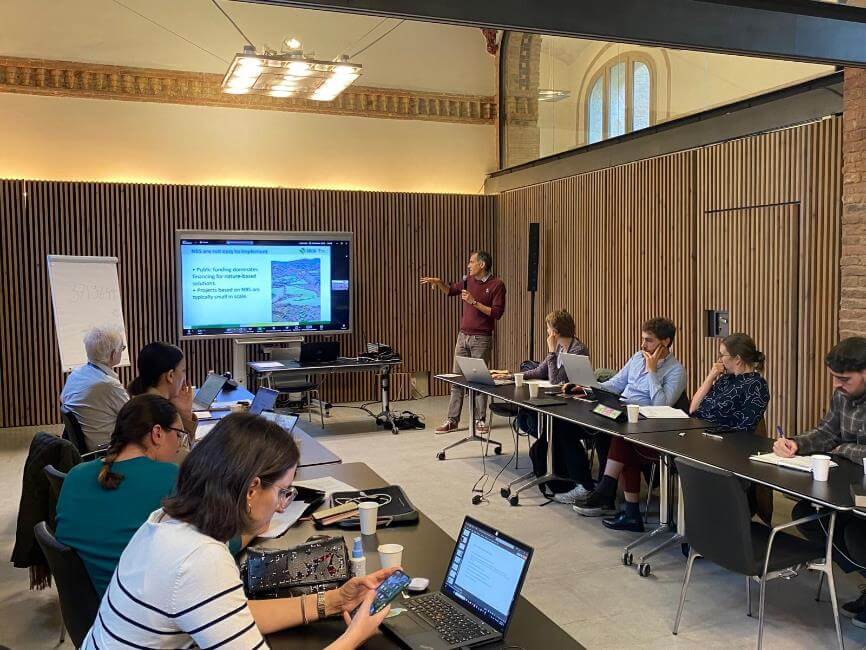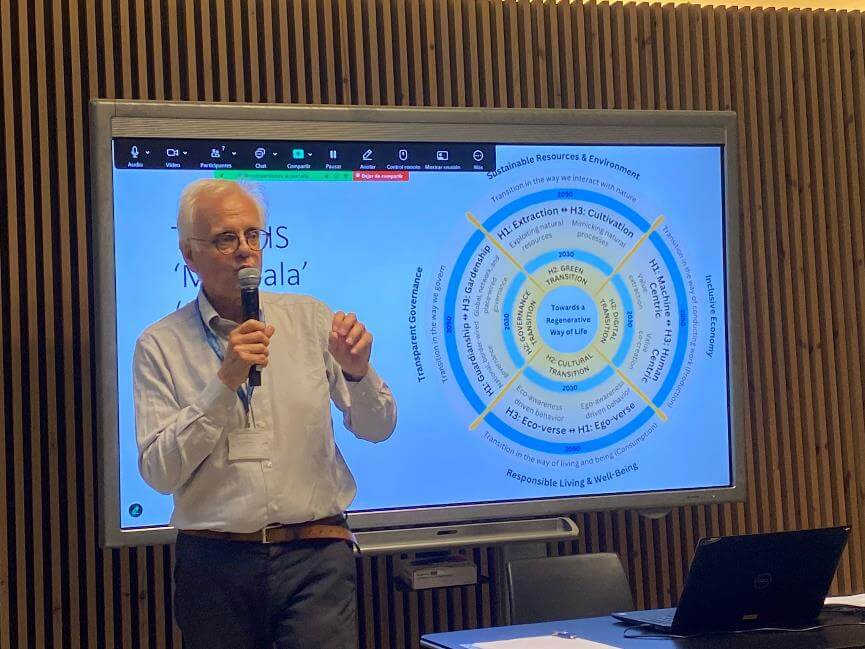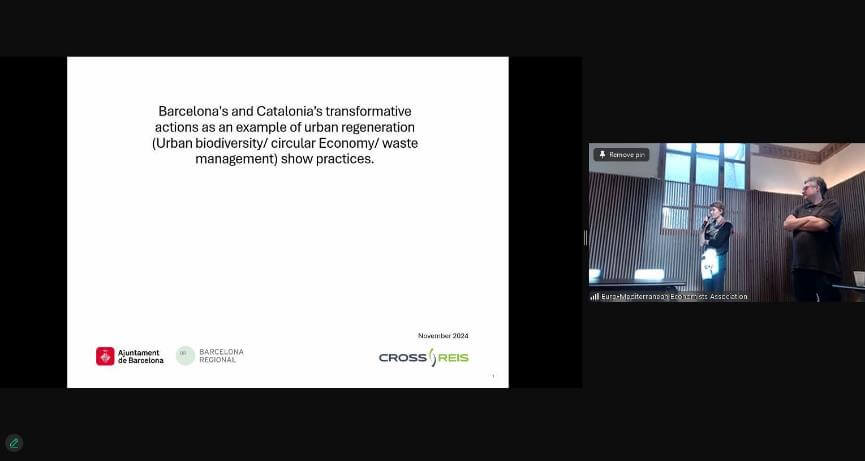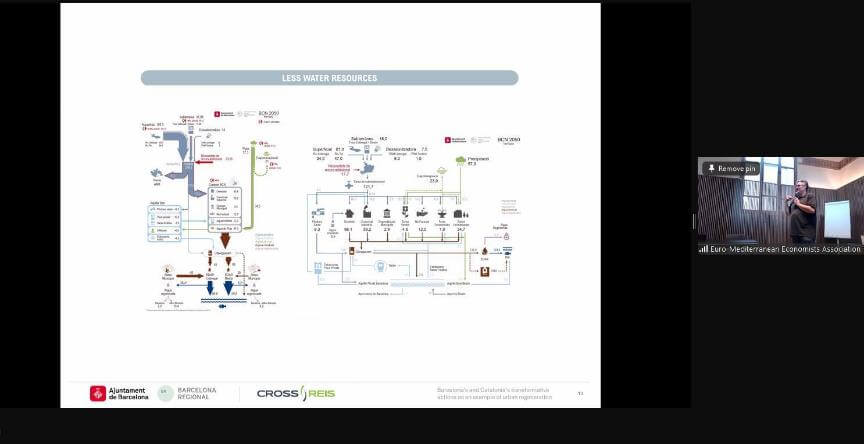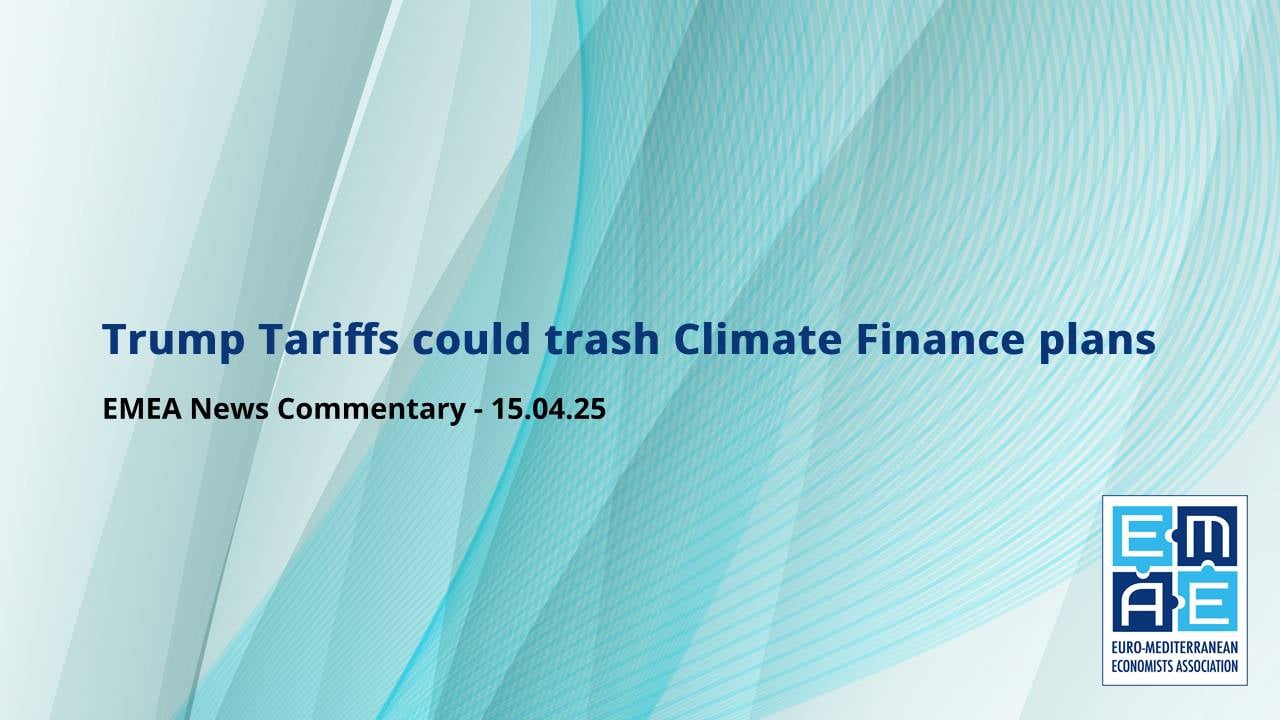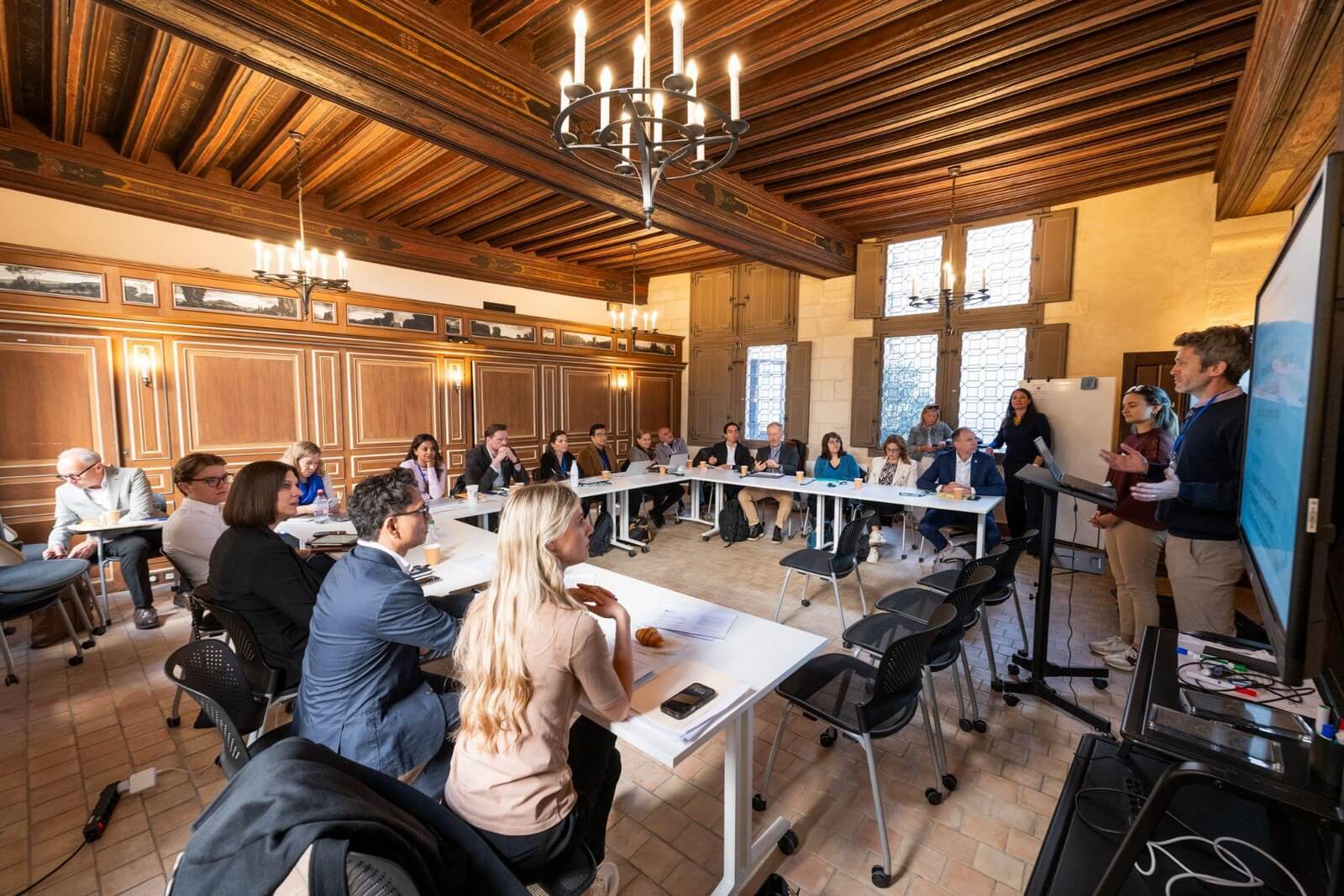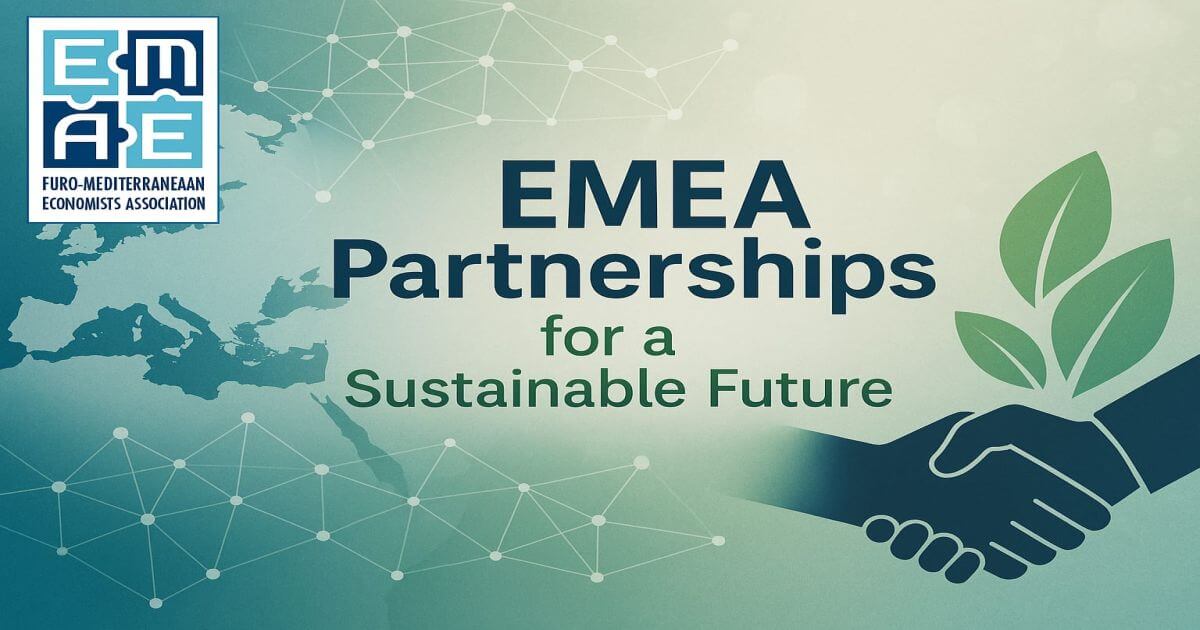The Euro-Mediterranean Economists Association (EMEA) organized the stage “Building Capacities and the Knowledge Base for Regenerative Economy Stewardship” as part of the EU-funded CROSS-REIS Project, from October 28 to November 1, 2024, at EMEA HQ in Recinte Modernista Sant Pau, Barcelona, Spain. The stage gathered researchers, policymakers, and practitioners from universities and institutions across Serbia, Montenegro, Croatia, Albania, Slovenia, Norway, and Italy—CROSS-REIS project partners—aiming to empower participants with the knowledge, tools, and networks necessary to advance research and innovation in regenerative economy systems.
The event opened on October 28, 2024, with a welcome speech on “Exploring Policy Needs: European Policies for Regenerative Economy Development” by Prof. Rym Ayadi, EMEA President and Founder. Prof. Ayadi emphasized, “As we turn to restore the ecosystems that sustain us, we are not just fulfilling a legal obligation but embarking on a journey towards a regenerative economy—one where economic growth regenerates rather than depletes our natural resources. With the EU Nature Restoration Law and the powerful support of sustainable finance, we are crafting a future in which prosperity, environmental stewardship, and strategic investment go hand in hand. By aligning capital with nature-positive goals—such as regenerative agriculture and agroforestry that restore soil health and biodiversity, urban greening that enhances resilience, and circular manufacturing that reduces waste—financial markets are channeling investment into restoration efforts, de-risking sustainable projects, and pioneering bonds and loans that make regeneration profitable, building resilience, and creating enduring value for generations to come.”
The theme of the first day was “Building CROSS-REIS Network Research Capacities to Foster and Support Regenerative Innovation Ecosystems in Europe.” In his opening presentation on “Regenerative Economy Principles,” Prof. Carlo Sessa, Senior Researcher and member of the EMEA Executive Board, highlighted that “the starting point for regenerative thinking in organizations is the realization that humans are embedded in, part of, and fundamentally dependent on nature. Policy for regenerative organizations is an important field for future research.”
Further in his presentation on “Citizens’ Empowerment and Stewardship of Future-Oriented Policymaking: The Territorial Quality of Life Living Labs Approach and Practice,” Prof. Sessa noted, “One way through which people get involved in promoting sustainability, using their own expertise and knowledge, is through engaging in local environmental stewardship actions and initiatives, such as creating protected areas, replanting trees, limiting harvests, reducing harmful activities or pollution, creating community gardens, restoring degraded areas, or purchasing more sustainable products. CROSS-REIS will build on this approach to engage with stakeholders and citizen communities in broader territorial health and human well-being stewardship actions.”
The first day of the stage included presentations by CROSS-REIS representatives:
-
- Jelena J. Stanković, Faculty of Economics, University of Niš, FEUN, Serbia
- Claudia Romelli, Consorzio Poliedra, Italy
- Sasa Drezgic and Saša Čegar, Sveučilište u Rijeci / University of Rijeka, EFRI, Croatia
- Fiona Imami (PhD), Co-Plan Institute for Habitat Development, Albania
- Milica Muhadinovic and Milica Vukčević, University of Montenegro, UOM, Montenegro
- Matjaž Hribar, University of Ljubljana, UL, Slovenia
The theme of the second day was “Building Up Synergies Between Partners’ Research Aims and EMEA Capabilities.” The day opened with a presentation on EMEA activities—networks, dashboards, platforms, and projects—by Dr. Yeganeh Forouheshfar, EMEA Senior Researcher. EMEA projects were presented by EMEA Senior Project Officer Maria Ruiz de Cossío, EMEA Project Managers Christine de Visser & Joanna Grodzka, and EMEA Junior Researchers Paula Pazos Puig, Riccardo De Angeli, and Tiago Fioravanti Zibecchi.
The second day ended with a mini-course titled “How to Craft Policy-Relevant Research Messages and Impact Policymaking” and a working session: “Brainstorming and Role-Playing Exercise” guided by Magali Outters, Senior International Sustainability Consultant.
The theme of the third day was “Natural Capital and Nature-Based Solutions.” During the day, the following presentations took place:
-
- “Blue Carbon as Natural Capital” by Nathalie Hilmi, PhD, Section Head of Environmental Economics, Centre Scientifique de Monaco, EMEA Advisor
- “ReForest (Project Nr. 101060635) Research Outcomes, Agroforestry Practice, and Green Financing Schemes” by Tiago Fioravanti Zibecchi, Junior Researcher, EMEA
- “Landscape Development and Renewable Energy in the Context of Regenerative Economy” by Ivan Hajdukovic, PhD, Senior Researcher, École Polytechnique Fédérale de Lausanne (EPFL), EMEA Research Fellow
- “Regenerative Economy Based on Natural Capital and Nature-Based Solutions” by Enrique Doblas Miranda, PhD, Transfer Officer, Centre for Ecological Research and Forestry Applications (CREAF)
- “Overview of Regenerative Economy in Albania with Focus on Agriculture and (Peri)urban Areas—Implications for Evidence-Based Policymaking,” presented by Drini Imami, Development Solutions Associates, Albania
Following the presentations, Prof. Carlo Sessa moderated the discussion, “How Would Regenerative Practices/Nature-Based Solutions Fit in the Expanding Partners’ Business and Policy Contexts?” The day concluded with a training session on “Strategic Foresight Capacity Building” led by Prof. Carlo Sessa, covering:
-
- The Three Horizons Approach and Practice
- The TRIS (Transparent, Responsible, Inclusive, Sustainable) Model of Transition to a Regenerative Economy System and Dashboard of Indicators
- Discussion: How Can Strategic Foresight Influence Local Policy?
The theme of the fourth day was “Catalonia’s Regenerative Innovation Ecosystem: Challenges, Practices, and Future Research Directions.” Mr. Marc Montlleó, Director of Environmental Projects, Energy, and Data at Barcelona Regional, presented on “Barcelona’s and Catalonia’s Transformative Actions as Examples of Urban Regeneration (Urban Biodiversity, Circular Economy, and Waste Management) Show Practices.”
The stage concluded on November 1, 2024, with a visit to Barcelona’s 22@ Innovation District, an area of nearly 200 hectares aimed at transforming the old industrial land of Poblenou (Sant Martí district) into a strategic hub for knowledge-intensive activities.
The Cross-disciplinary Network for Research Excellence in Regenerative Economy Innovation Ecosystems (CROSS-REIS) is committed to advancing knowledge and research that fosters regenerative economies. Regenerative economies are built upon principles that not only sustain but restore and revitalize natural ecosystems and societal well-being. In this context, CROSS-REIS brings together researchers, policymakers, and practitioners from across Europe and the Mediterranean region to engage in collaborative efforts to enhance research capacities and develop innovative solutions.


